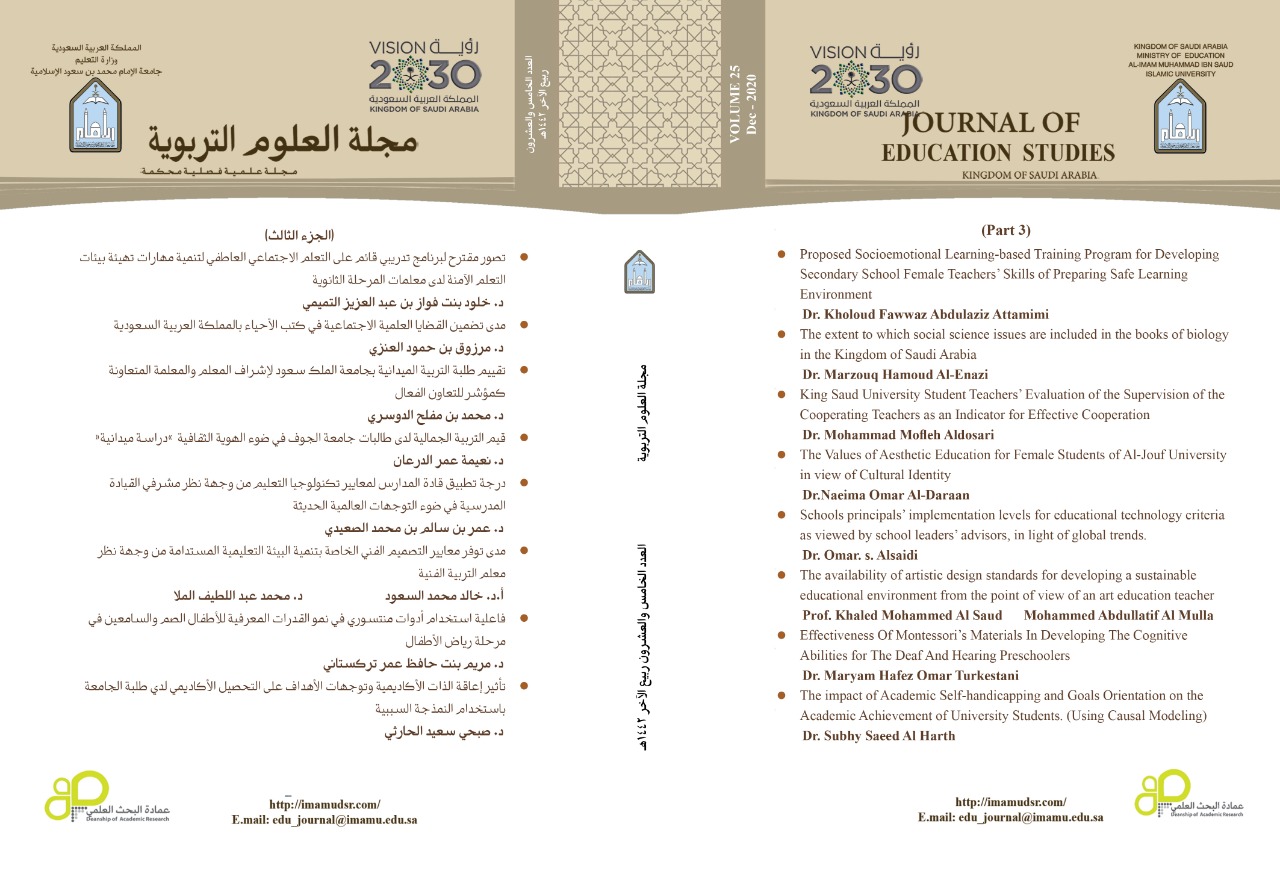Schools principals’ implementation levels for educational technology criteria as viewed by school leaders’ advisors, in light of global trends
Keywords:
Educational Technology, Schools Principals, Technical Criteria of Education, School Administration, Global TrendsAbstract
The current study aimed to reveal the degree of school leaders' application of educational technology standards from the viewpoint of school leadership supervisors. By using the descriptive analytical approach, the author designed a questionnaire about technological standards for school leaders in the view of global trends, which consisted of (5) standards and (68) indicators. The first standard was equality and digital citizenship which had (9) indicators; the second standard dealt with strategic vision and plans, including (22) indicators; the third standard concerned about creating a technological culture in the school environment with (14) indicators; the fourth standard was about systems and resources design, and it includes (11) indicators. The last standard dealt with continuous professional learning, including (12) indicators. The tool was distributed to the entire study community (346) school leadership supervisors in all (16) Public Departments of Education in the Kingdom of Saudi Arabia. A total of (170) questionnaires were returned from school leadership supervisors. The study revealed a low rate of the application of educational technology in all standards by schools leaders. Also, the results showed that there were no differences in terms of gender and educational region in the degree to which schools leaders apply educational technology standards from the viewpoint of school leadership supervisors. The findings of this study suggest to carry out training sessions about educational technology criteria and recommends to raise school principals’ awareness concerning educational technology. Also, theoretical as well as pedagogical implications have been recommended in this study.




